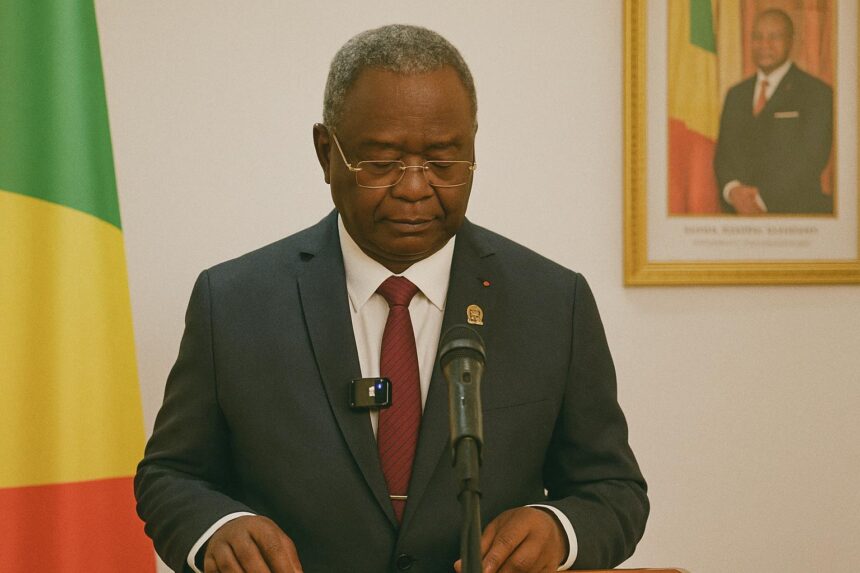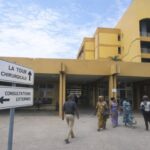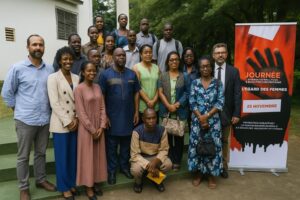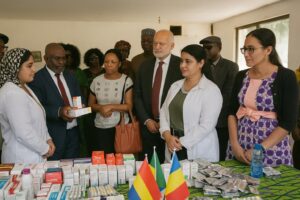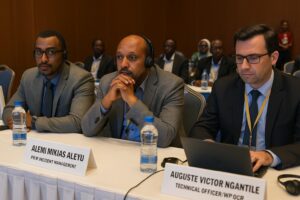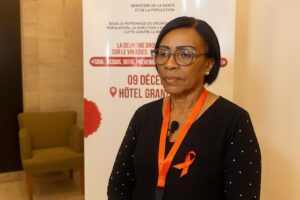Public Health Alert On The Congo River
When Professor Jean Rosaire Ibara, Congo-Brazzaville’s Minister of Health and Population, announced two laboratory-confirmed cholera infections on Mbamou Island on 26 July, the news resonated far beyond the river islet. The district, situated in the fluvial heart of Brazzaville’s department, reported 103 suspected cases and twelve probable fatalities by the same communiqué (Congo Ministry of Health, 26 July 2023). Although the figures remain modest compared with historic Central African outbreaks, the declaration immediately triggered the International Health Regulations protocol to which Brazzaville is a signatory. The symbolic weight of a formal outbreak notice, the first in the capital’s vicinity since 2011, underscores the government’s determination to privilege transparency and rapid engagement with its multilateral partners.
Coordinated Government–WHO Response Framework
Field investigation teams comprising national epidemiologists, World Health Organization specialists and Médecins d’Afrique volunteers reached Mbamou within twenty-four hours. Their joint operations centre, installed in a repurposed schoolhouse overlooking the river’s pale green waters, began intensive case-finding, rehydration therapy and chlorination of communal wells. Officials report that over six hundred households have already benefited from door-to-door risk communication in Lingala and Kituba dialects (WHO Congo Office, 27 July 2023). Contrary to alarmist social-media rumours, the authorities have refrained from imposing blanket movement restrictions, opting instead for targeted surveillance at landing stages. Speaking to the diplomatic corps in Brazzaville, Minister Ibara insisted that “a calibrated response rooted in science” would preserve public confidence while protecting economic activity.
Regional Ramifications For Riverine Trade
Mbamou sits astride the bustling canoe and barge lanes linking Brazzaville with upriver ports in the Democratic Republic of Congo and the Central African Republic. Any prolonged disruption could reverberate through timber, cement and agricultural supply chains already strained by post-pandemic logistics bottlenecks. Port authority data indicate that more than three-quarters of Brazzaville’s informal food imports transit the narrow channel hugging the island’s eastern shore (OCHA Regional Briefing, August 2023). By restricting only vessels originating from high-risk fishing hamlets and by establishing on-site chlorination points, the government has so far preserved commerce while signalling vigilance. Neighbouring capitals have welcomed the approach; Kinshasa’s Ministry of Public Health confirmed reciprocal monitoring on its banks of the Congo River, describing Brazzaville’s measures as “commensurate with cross-border solidarity.”
Infrastructure And Social Behaviour As Determinants
Health experts largely concur that Mbamou’s vulnerability stems from seasonal hydrological peaks that submerge pit latrines and contaminate shallow wells. A UNICEF field note points to a thirty-eight percent coverage rate for improved sanitation on the island, well below the national urban average (UNICEF Field Note, July 2023). Yet infrastructure tells only part of the story. Traditional gathering in makeshift riverside markets, communal preparation of cassava and grilled fish, and ritual sharing of palm wine create multiple oral–faecal transmission vectors. The Ministry’s communication campaign has therefore coupled technical advice—such as demonstrating low-cost solar water disinfection—with culturally sensitive messaging delivered by local chiefs and the influential women’s association Maman Mboka. Early anthropological feedback suggests a notable uptick in hand-washing practices during evening market hours.
Diplomatic Stakes In Health Security
For Congo-Brazzaville, effective management of the Mbamou outbreak carries reputational significance at a moment of heightened global scrutiny of epidemic preparedness. The country is competing for a non-permanent seat on the United Nations Security Council for the 2026–2027 term, campaigning on a platform of health security and climate resilience. Several ambassadors privately acknowledge that swift, transparent action against cholera reinforces Brazzaville’s narrative of responsible stewardship. Beyond image, international financial institutions increasingly tie concessional lending to demonstrable health-system performance. The World Bank’s forthcoming Second Health System Strengthening Project, negotiated earlier this year, earmarks US$110 million for water-borne disease surveillance. Credible containment on Mbamou could accelerate the project’s board approval cycle.
Prospects For Containment And Long-Term Resilience
Epidemiological modelling conducted by the National Public Health Laboratory, shared with partners on 2 August, projects a downward trend within six weeks, provided current case-management and chlorination efforts continue uninterrupted. The mortality-to-case ratio, while initially elevated, has already fallen as oral rehydration salts and Ringer’s lactate become more widely available. Looking beyond emergency control, authorities are advancing a three-pronged resilience agenda: expansion of Brazzaville’s urban water-grid to peri-urban islets, institutionalisation of community health worker networks and gradual introduction of the oral cholera vaccine into routine immunisation for high-risk riparian districts. Each component is embedded in the 2022–2026 National Health Development Plan, whose progress will be scrutinised at the forthcoming Joint Annual Review. As the rainy season looms, diplomats and development partners alike will gauge whether the lessons of Mbamou translate into lasting public-health dividends for the Congo River basin.

